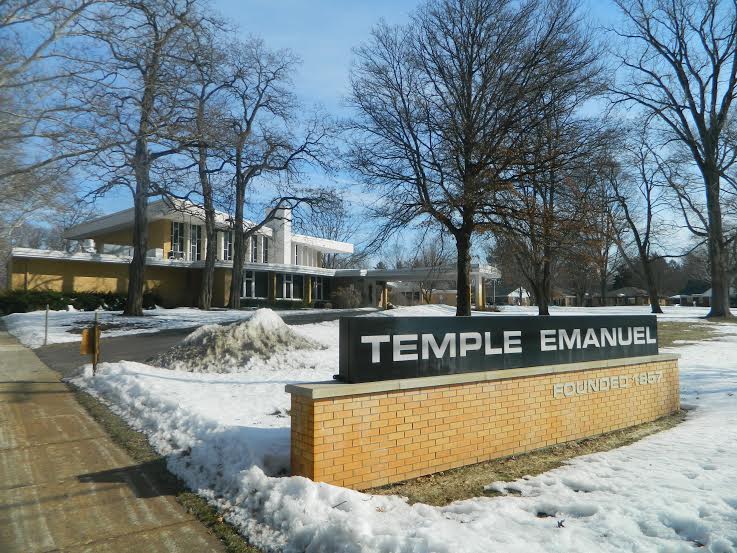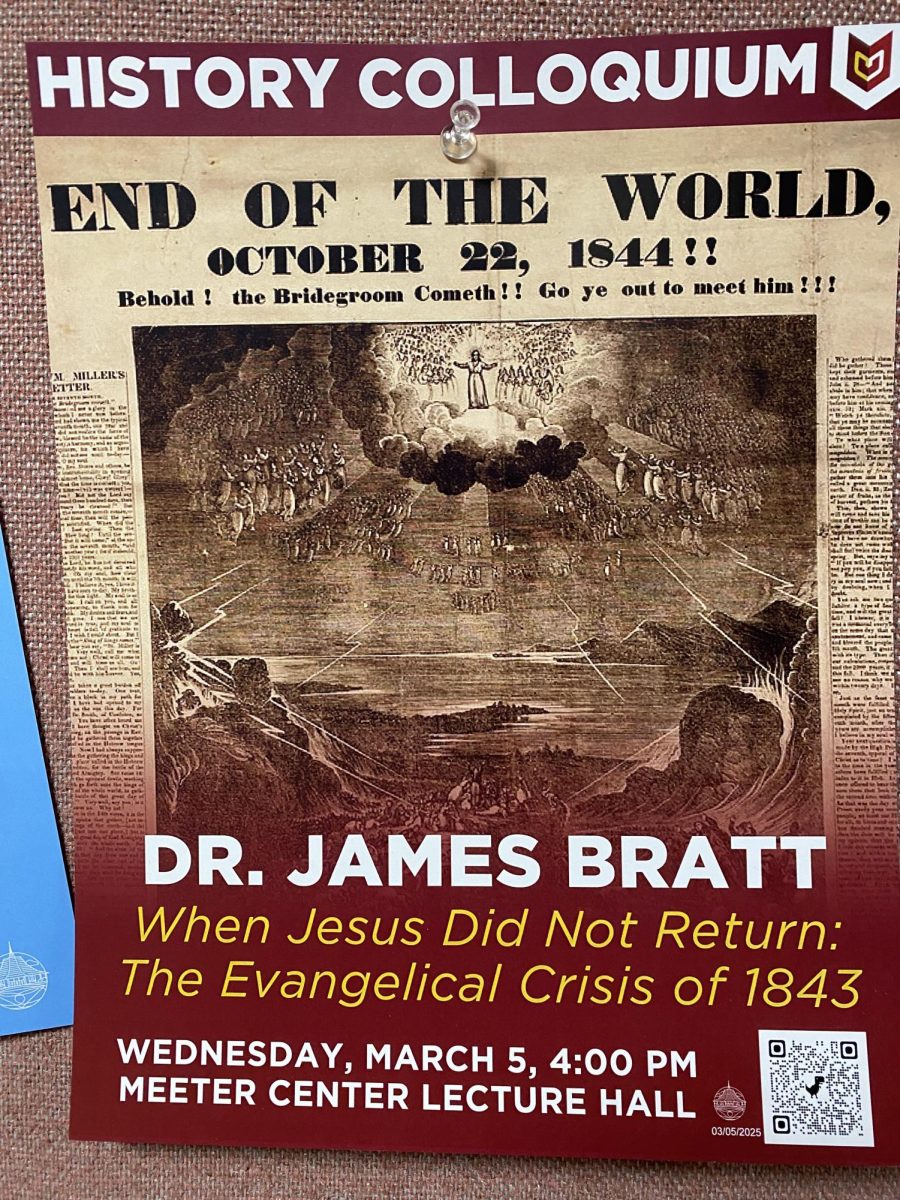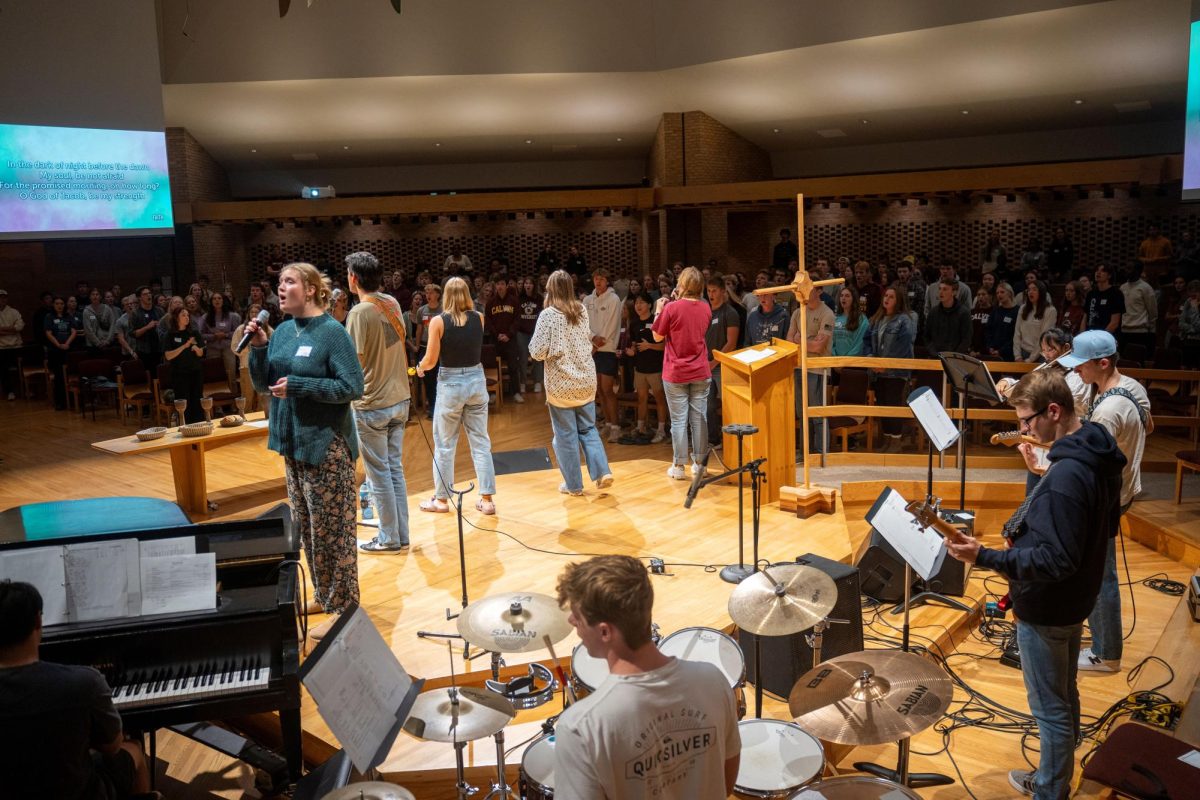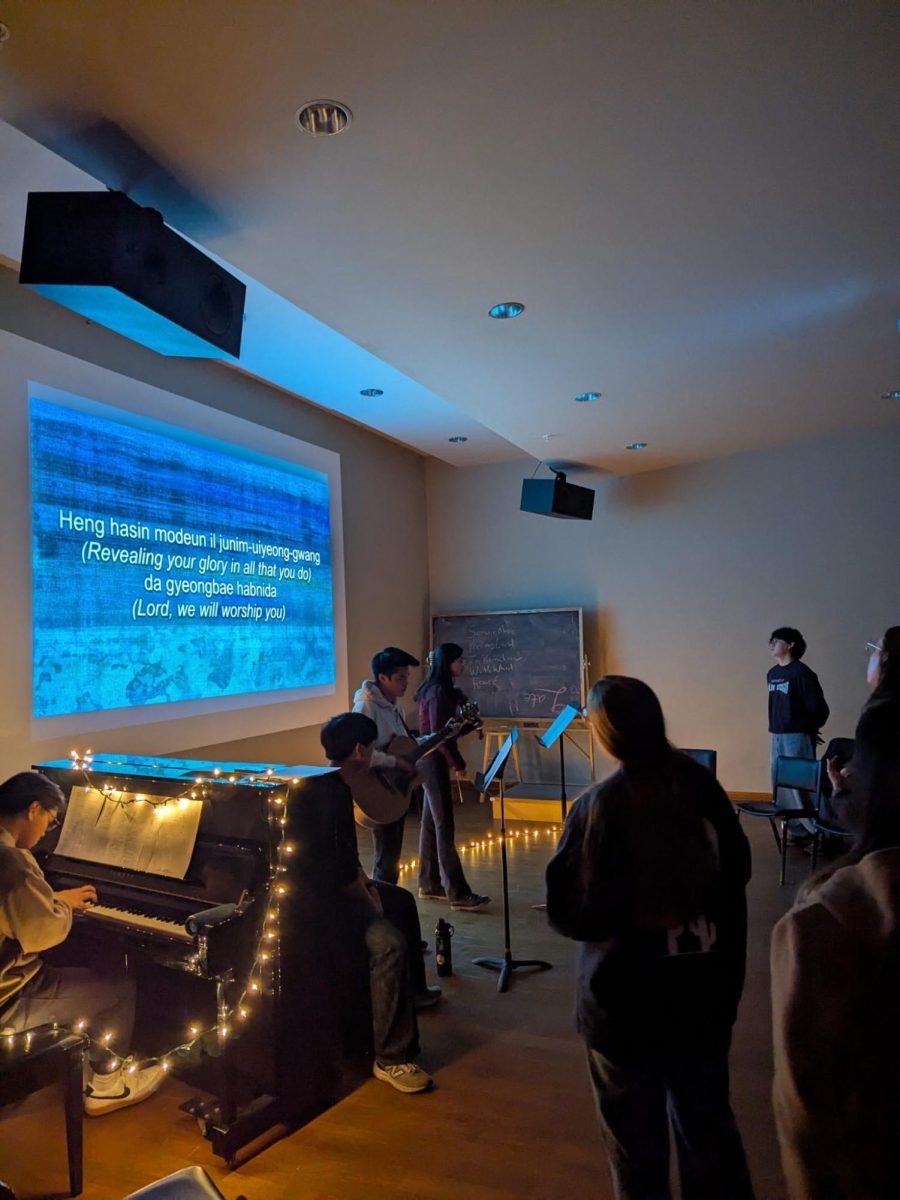We encounter Jewish people all the time — in our religion and history classes, when reading the Bible at church, watching news of the Middle East. But do we encounter Jewish People in our own community? Do we know what they believe? Michael Shadick, a rabbi at the Temple Emanuel on Fulton in downtown Grand Rapids, explains what modern Jews believe and shares his experiences as a Jew in Grand Rapids.
“To be Jewish means that we are heirs to a thousand-year-old tradition where we understand that God provided us with a framework for life,” Rabbi Schadick said. Jews rely on core values defined by the text of the Torah. However, they also work within that framework to interpret what the Torah says to us today.
Judaism is a complex religion with many interpretations of the Torah that people hold to. The Torah is a long, complete book that invites a great deal of study. Schadick said that it is “intellectually very satisfying.” To help people understand its complexity, the temple has many education programs for all ages.
Schadick does not think it is helpful to point the finger and say that someone is simply wrong if they have different traditions or different interpretations of Judaism. Schadick applies this view to other religions as well, namely Islam and Christianity.
“We certainly value and respect other people’s belief systems,” he said. He is offended when people say to Jews that their way is not the right way.
Schadick has a very high view of Christians. He said that all of his interactions with Christians have been positive, including those with Calvin College. He found that whenever Calvin students visit the temple, they are very respectful.
Rabbi Schadick said the one thing he would like Christians to know is that the two religions are not so different.
“I think Christians sometimes forget that … if we were to hold the Jewish Bible in one hand and the Christian Bible in the other, they are remarkably similar.… The Christian Bible came out of the Jewish Bible,” he said. Similarities can be seen through the Rabbi’s description of the work of the temple.
“If the corner of the world that you live in isn’t a little better after you having been there, then you haven’t lived up to what God expects you to do,” he said. Jews believe that they need to take what they have been given and do something transformative.
“Doing something is much more important than saying, ‘we all have to believe the same thing,’” Schadick said. In order to practice the idea of “deed over creed,” the temple holds food drives, hosts events and makes an effort to get to know the people around them. If they cannot do this in the immediate community, individuals do this in their everyday lives.
John-Marc Eshelman, a senior, expressed difficulty reconciling the historical Judaism with what Judaism looks like today, something many Calvin students may struggle with.
“I think [modern Judaism] is quite different from historical Judaism,” he said. He said that they have undergone many changes since the fall of Israel.
Like Christianity, Judaism has many different traditions. All of them struggle with the question of what it means to be Jewish today. Temple Emanuel is of the Reform Tradition of Judaism.
“We are reform, R-E-F-O-R-M, not Reformed, R-E-F-O-R-M-E-D. We are still in the process of Reform,” Schadick said. The Temple is always trying to adapt to a changing world and remain relevant, a common struggle the Christian Church faces as well.
The Temple Emanuel holds a worship service every Friday evening. A typical service at the temple consists of reading the Torah and giving thanks to God.
“Our service is one where any believer of God would have no problem participating,” Schadick said.
The Jewish tradition contains many holidays that are important to Jewish practice. The temple just celebrated Purim, the festival depicted in Esther. It is a celebration of the Jewish people being delivered from Haman. The celebration involves using many noise-makers which makes this a favorite for the children.
Being a Jew in Grand Rapids has challenges because Jews are in the minority. There are only three temples in Grand Rapids, according to the Jewish Federation of Grand Rapids.
Schadick said anti-semitism is not prevalent in Grand Rapids. Jews were not accepted 60-70 years ago as they are today. However, he believes this acceptance can make it difficult to hold on to the distinction of their faith.
“How do you continue on as a faith tradition when it’s easy to be swallowed up by the greater community?” Schadick asked.
Schadick grew up in a small Jewish community in New Hampshire. He went to a public school, was very involved in his Synagogue and felt very blessed with his Jewish family and friends.
“It’s all good. Never, ever, ever do I have a negative memory of being Jewish,” he said. “It’s who I am.”







